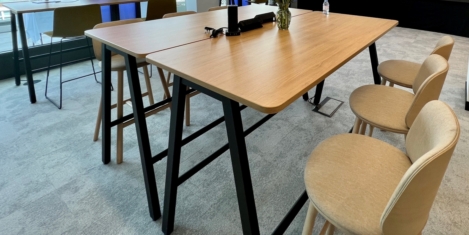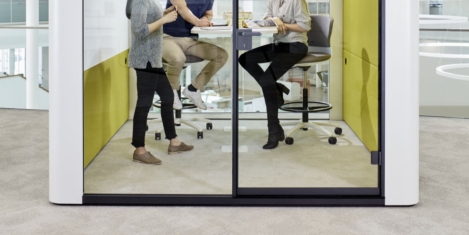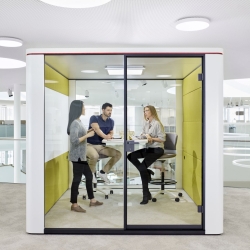To provide the best experiences, we use technologies like cookies to store and/or access device information. Consenting to these technologies will allow us to process data such as browsing behaviour or unique IDs on this site. Not consenting or withdrawing consent, may adversely affect certain features and functions.
The technical storage or access is strictly necessary for the legitimate purpose of enabling the use of a specific service explicitly requested by the subscriber or user, or for the sole purpose of carrying out the transmission of a communication over an electronic communications network.
The technical storage or access is necessary for the legitimate purpose of storing preferences that are not requested by the subscriber or user.
The technical storage or access that is used exclusively for statistical purposes.
The technical storage or access that is used exclusively for anonymous statistical purposes. Without a subpoena, voluntary compliance on the part of your Internet Service Provider, or additional records from a third party, information stored or retrieved for this purpose alone cannot usually be used to identify you.
The technical storage or access is required to create user profiles to send advertising, or to track the user on a website or across several websites for similar marketing purposes.
 A new study from IBM claims that while employees rank meaningful work as something they care about deeply, executives say it’s the least important factor to their teams. The study, Augmented work for an automated, AI-driven world surveyed 3,000 global C-Suite executives across 20 industries and 28 countries. It also suggests that executives in the UK estimate that 41 percent of their workforce will need to reskill as a result of implementing AI and automation over the next three years. (more…)
A new study from IBM claims that while employees rank meaningful work as something they care about deeply, executives say it’s the least important factor to their teams. The study, Augmented work for an automated, AI-driven world surveyed 3,000 global C-Suite executives across 20 industries and 28 countries. It also suggests that executives in the UK estimate that 41 percent of their workforce will need to reskill as a result of implementing AI and automation over the next three years. (more…)










 Zoom has opened a new London ‘Engagement Hub’ which the firm claims will spearhead the shift from traditional office spaces to ‘experiential working hubs’. With the demand for hybrid working and remote capabilities giving rise to unconventional ways of operating, Zoom says it has designed its new office to support the changing nature of the employee experience, marking a new era of modern work.
Zoom has opened a new London ‘Engagement Hub’ which the firm claims will spearhead the shift from traditional office spaces to ‘experiential working hubs’. With the demand for hybrid working and remote capabilities giving rise to unconventional ways of operating, Zoom says it has designed its new office to support the changing nature of the employee experience, marking a new era of modern work. 
























July 31, 2023
Digital nomads are starting to price out local communities around the world
by Dave Cook • Cities, Comment, Flexible working